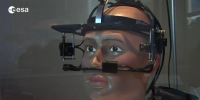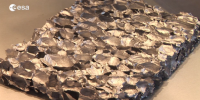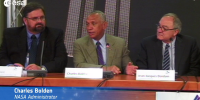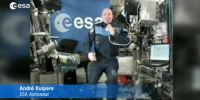Editor’s note: These brief extracts are paraphrased from live webcast and may not be fully correct.
Download the presentation slides: Atomic Quantum Sensors in Space and Fundamental Tests
Presentation by Christophe Salomon, Research Director, CNRS
- Creating more precise clocks to improve navigation systems requires atomic precision.
- Sensitivity of atomic equipment is often increased in space as compared to on Earth.
- The ACES programme will fly two atomic clocks to the ISS in 2015.
- The clocks’ time will be compared to multiple clocks on Earth creating a network of atomic clocks via space .
- The goal is to test whether fundamental constants vary over time by comparing differences.
- The results will be of importance for unified theories such as string theory as well as to test Einstein’s theory.
- ACES will improve clocks on Earth and measure time difference between two clocks on Earth down that translates to a navigational accuracy of 10 cms. Presently satellite navigation accuracy is at a level of 20 cms.
More information on ACES is available on the ESA website.





Discussion: no comments